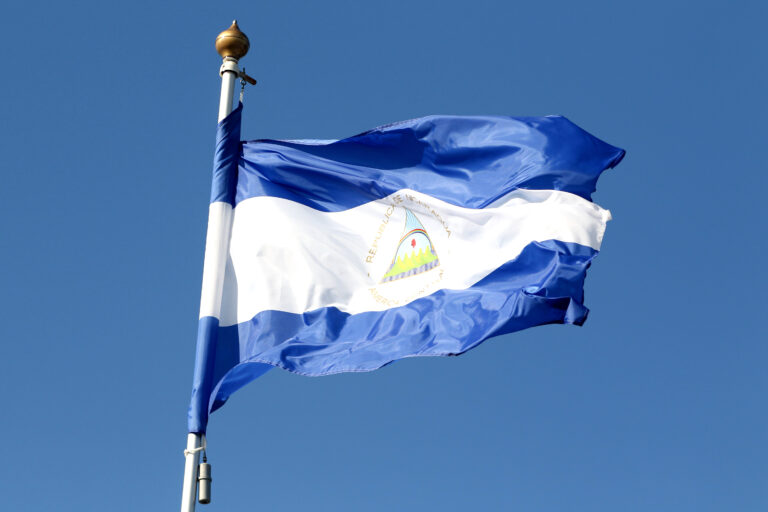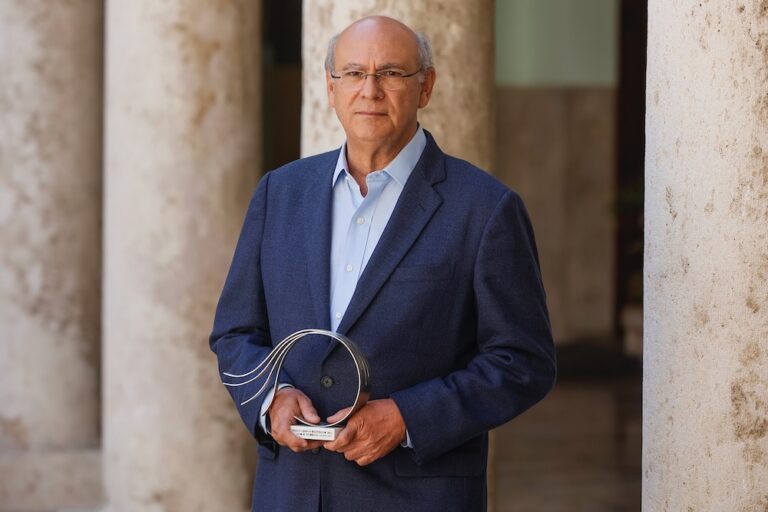(RSF/IFEX) – The following is a 21 October 2008 RSF letter to President Daniel Ortega: Mr. Daniel Ortega Saavedra President Managua, Nicaragua Dear Mr President, Reporters Without Borders, a worldwide organisation that defends press freedom, would like to draw your attention to its deep concern about recent incidents that have impacted on non-governmental organisations and […]
(RSF/IFEX) – The following is a 21 October 2008 RSF letter to President Daniel Ortega:
Mr. Daniel Ortega Saavedra
President
Managua, Nicaragua
Dear Mr President,
Reporters Without Borders, a worldwide organisation that defends press freedom, would like to draw your attention to its deep concern about recent incidents that have impacted on non-governmental organisations and the media. There has been a sharp decline in the state of public freedoms in your country, which as guarantor of fundamental constitutional principles it is incumbent on you to resolve.
We are first of all dismayed at the level of passivity shown by the security forces on 16 October 2008, when representatives of the Nicaraguan Centre for Human Rights (Cenidh) were assaulted outside the Managua prosecutor’s office by members of the Citizens’ Power Councils (CPC), a body co-ordinated by your wife, Mrs. Rosario Murillo. The executive president of Cenidh, Vilma Nuñez, narrowly escaped a vicious assault, something that is even more unacceptable considering that she is 70 years old. The communications director of Cenidh, Hector Calero, and his brother, Camilo Calero, cameraman for the privately-owned Canal 12 television, found themselves on the ground under a hail of blows before Dino Andino, of Canal 2, and two lawyers – Norwin Solano and Gonzalo Carrion – were attacked in their turn as they tried to intervene. Police officers who were present failed to react to the pleas for help from the victims and no voice has been raised within the justice system or the government to condemn such actions.
This incident happened as Cenidh activists were accompanying Cecilia Millan, an Oxfam-Great Britain representative in Nicaragua, to the prosecutor’s office where she was to produce her organisation’s accounts. This was in response to accusations of “fraud” and “money-laundering” made against 17 NGOs, and in this particular case against the Centre for Investigation and Communication (CINCO) and the Autonomous Women’s Movement (MAM) with which Oxfam-Great Britain has a cooperation agreement. Reporters Without Borders has already voiced concern in a 10 October 2008 release about the consequences of a libellous media campaign aimed at journalists Carlos Fernando Chamorro and Sofía Montenegro, respectively directors of CINCO and MAM. Their summons by the prosecutor’s office and the searches of their offices, as a result of legal proceedings launched at the request of the interior ministry, were riddled with irregularities and carried out in an atmosphere of violence and intimidation completely at odds with the calm and impartial exercise of justice.
The witch-hunt against NGOs and privately-owned media accused of wanting to “destabilise” the government and “working for the CIA” – charges fraught with risk of physical harm to those they are levelled against – have other worrying consequences for free expression. They led, for example, to journalist and editorialist Edgar Tijerino dropping his political comments, which were for decades a feature of Nicaraguan sports programmes. These attacks are all the more abhorrent in that they were aimed at his wife, Auxiliadora Mercado, who has always kept herself out of public debates.
A witch-hunt has also been evident in the harassment by CPC militants of the daily La Prensa, which is a target of legal proceedings for “insult” and “libel” by three deputies of the Nicaraguan Liberal Alliance (ALN). Similar allegations also made by these parliamentarians against Santiago Aburto, of Canal 12, and Jaime Arellano, ex presenter on Canal 2, vie for unpleasantness with constant diatribes made against them by officials on the pro-government television station Canal 4. Jaime Arellano was summoned by the prosecutor’s office on 8 October 2008 in connection with an interview he did with former Mexican president Vicente Fox which was seen as “external interference” in the upcoming 9 November municipal elections. This accusation shows a determination to make the journalist responsible for comments which it is his job to report. If Jaime Arellano is convicted for this reason it will be a step towards creating the offence of voicing an opinion.
Finally, the demonization of the profession also has repercussions in the daily life of the media, as in the case of Oliver Gómez, of the daily El Nuevo Diario, victim of an unfair measure taken against him by an official at the public health ministry who refused to give this “representative of the oligarchy” a vaccination he needed to go abroad. This punishment is again the result of a malicious campaign against anyone working for a media judged not to conform to official opinion. Such ostracism is particularly serious in that it opens the way for all kinds of abuse at all levels of government. It also throws into doubt the principle of equality of all citizens and their right to freedom from discrimination.
That is why we urge you to have this campaign of hatred and suspicion brought to an end, including in the legal domain, to guarantee the safety of journalists and to see that everything possible is done to ensure the right to freely inform the public. We also hope that those responsible for this violence will be prosecuted and convicted regardless of their affiliations. Reporters Without Borders is prepared to support any initiative that might contribute to restoring civil order, without which it is impossible to exercise democratic rights.
I trust, Mr President, that you will give this letter your careful consideration.
Yours sincerely,
Jean-François Julliard
Secretary-General


